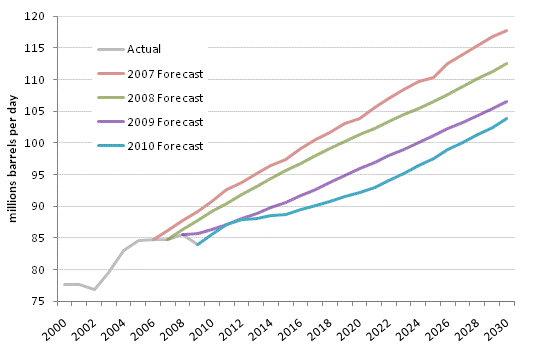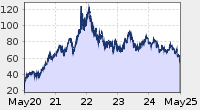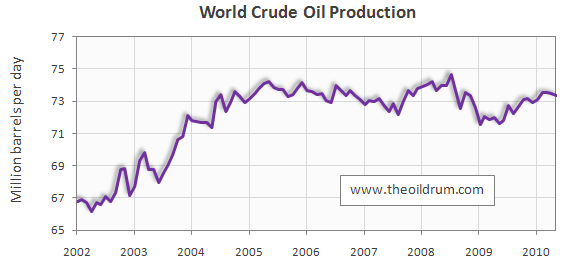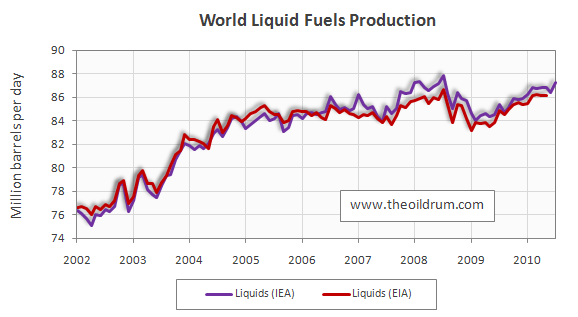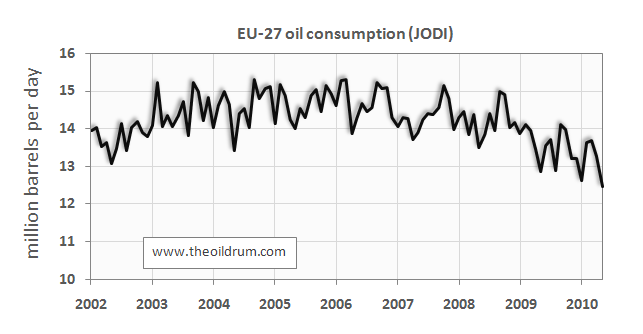WGR Werk, Geldzaken, Recht en de Beurs
Hier kun je alles kwijt over sollicitaties, werksituaties, belastingen, (handelen op) de beurs, hypotheken, beleggingen en salarissen, arbeidscontracten of geschillen met je (huis)baas. Alles over werk, geldzaken en recht dus.



BP stopt ermee.
Ze gaan voor de reliefdrill in augustus.
http://www.bloomberg.com/apps/news?pid=20601087&sid=aqM0PU2KWY58&pos=8
Ze gaan voor de reliefdrill in augustus.
http://www.bloomberg.com/apps/news?pid=20601087&sid=aqM0PU2KWY58&pos=8
Escaping from a liquidity trap may be impossible, much like light trapped in a black hole.
Op zaterdag 19 november 2011 13:27 schreef Perrin het volgende: En net als van voetbal, heeft iedereen verstand van macro-economie
Op zaterdag 19 november 2011 13:27 schreef Perrin het volgende: En net als van voetbal, heeft iedereen verstand van macro-economie


Op welke feiten baseer je dat?quote:Op zaterdag 29 mei 2010 14:01 schreef SeLang het volgende:
Het is maar goed dat we in de 2de helft van het jaar een double dip recessie ingaan. Dat houdt de olieprijs in bedwang.
Wie bang is voor morgen, kan niet genieten van vandaag.
Religie is als taal, een basisbehoefte voor een maatschappij, iedereen spreekt zijn eigen dialect en even verder op begrijp je niet meer wat de ander zegt.
Religie is als taal, een basisbehoefte voor een maatschappij, iedereen spreekt zijn eigen dialect en even verder op begrijp je niet meer wat de ander zegt.


quote:EIA: From Forecast of Oil Supply Abundance to Decade of Stagnation
[..]
But that's not the interesting part. The more salient development is the reduction in the forecast to 2020. Forecasts beyond ten years are highly uncertain and more subject to massaging and 'interpretation'. Shorter term forecasts are more definite, and the forecasters are more accountable. As a consequence, the outlook for the short to medium term warrants greater attention. In the case of the EIA, the forecast changes most dramatically here.
For the remainder of the decade, even though China would be expected to hit its stride for increased oil demand, the EIA sees no year in which liquids production will increase by even 1%. Petroleum liquids supply increases by an average of 0.6% per year from 2011 to 2020. In other words, the EIA is expecting the oil supply to be essentially flat for the rest of the decade. The supply will creep up from 86 mbpd today to approximately 92 mbpd to 2020, but that is not much growth, and indeed, is about the same as current global liquids production capacity. Moreover, it represents a reduction of nearly 4 mbpd from last year's forecast for 2020. On paper, the output of China has disappeared over the course of the last year.
In its forecast, the EIA, normally the cheerleader for production growth, has become amongst the most pessimistic forecasters around. For example, its forecasts to 2020 are 2-3 mbpd lower than that of traditionally dour Total, the French oil major. And they are below our own forecasts at Douglas-Westwood through 2020. As we are normally considered to be in the peak oil camp, the EIA's forecast is nothing short of remarkable, and grim.
[..]
quote:Top scientist says politicians have 'heads in the sand' over oil
Britain's former chief scientist has attacked politicians and industry experts who have their "heads in the sand" over dwindling oil supplies.
Sir David King said governments, including the UK's, were too eager to believe the optimistic predictions of economists who tell them that "oil will be squeezed out of the ground pretty much forever".
King, the government's chief scientific adviser from 2000 to 2007, is now director of the Smith School of Enterprise and the Environment in Oxford.
He said: "That's what governments want to hear and that's what they do hear, and I think the British government as much as many others."
He added that those with a "vested interest" repeatedly overstated how much accessible oil remains in the ground. Conventional oil reserves are about 30% lower than widely reported, he said.
Established oil sources were becoming harder to exploit, he said, leading to wider use of unconventional sources such as deepwater drilling, with environmental impacts including those seen with the Deepwater Horizon spill in the Gulf of Mexico.[..]
quote:EIA estimates drilling ban's impact on gulf production
WASHINGTON, DC, June 8 -- Production of oil from the US Gulf of Mexico will drop by an average 26,000 b/d during the fourth quarter and roughly 70,000 b/d during 2011 as a result of the Obama administration’s 6-month moratorium on deepwater drilling, the US Energy Information Administration forecasts.
Production from the deepwater gulf will decline by an estimated 2.4 million bbl in 2010 and 25 million bbl in 2011 because of the moratorium, EIA said as it issued its latest short-term energy outlook on June 8. US President Barack Obama ordered the suspension of deepwater drilling on May 27 after receiving an initial report and recommendations from Interior Sec. Ken Salazar concerning the Apr. 20 well blowout, rig explosion, and subsequent oil spill. [..]
quote:Russia, Greece Seal South Stream Deal
[..]
For the purpose of diversifying export routes of natural gas supply Gazprom plans to construct a gas pipeline running under the Black Sea to the countries of the South and Central Europe: the South Stream project.
The offshore section of the gas pipeline is planned to be laid under the Black Sea from the main compressor station Russkaya on the Russian coast to the Bulgarian coast. Its total length will be around 900 kilometers, the maximum depth – over two kilometers. Annual capacity of the offshore section of South Stream will be up to 63 billion cubic meters.
To implement the onshore section of the Project outside Russia, intergovernmental agreements were signed with Bulgaria, Serbia, Hungary, Greece, Slovenia, Croatia and Austria.
[..]
Dit gaat dus ook gebeuren in 'onze' Noordzee. Stond laatst een bericht over in het NRC.quote:UK to Increase North Sea Rig Inspections
Energy Secretary Chris Huhne said that the UK Government will increase its inspection of drilling rigs and monitoring of offshore compliance and has asked a new oil industry group to report back on its findings on the UK's ability to prevent and respond to oil spills.
A review has been carried out by DECC officials which has found that our existing system is fit for purpose, but in light of the spill in the Gulf we are strengthening the regime further.[..]
The problem is not the occupation, but how people deal with it.


Tussendoor even een berichtje over andere commodities, waarvoor ik zo gauw geen beter topic kon vinden:
Amerikanen hebben in Afghanistan voor zo'n ¤ 1.000.000.000.000 (1 biljoen) aan zeldzame ertsen gevonden, o.a. lithium waar grote vraag naar is ivm batterijen. Afghanistan heeft momenteel een bruto nationaal product van slechts zo'n $ 12 miljard, dus dit is nogal een opkikker voor het straatarme land.
http://www.nytimes.com/20(...)minerals.html?emc=na
Aanleiding om te gaan zoeken was overigens een oude maar veelbelovende stapel gegevens die Russische geologen tijdens de overheersing begin jaren '80 hadden verzameld. Wat zullen die Russen balen..
[edit] Ah kijk, iemand was me voor in NWS: '1 biljoen aan mineralen Afghanistan ontdekt'
[ Bericht 12% gewijzigd door dvr op 14-06-2010 06:39:13 ]
Amerikanen hebben in Afghanistan voor zo'n ¤ 1.000.000.000.000 (1 biljoen) aan zeldzame ertsen gevonden, o.a. lithium waar grote vraag naar is ivm batterijen. Afghanistan heeft momenteel een bruto nationaal product van slechts zo'n $ 12 miljard, dus dit is nogal een opkikker voor het straatarme land.
http://www.nytimes.com/20(...)minerals.html?emc=na
Aanleiding om te gaan zoeken was overigens een oude maar veelbelovende stapel gegevens die Russische geologen tijdens de overheersing begin jaren '80 hadden verzameld. Wat zullen die Russen balen..
[edit] Ah kijk, iemand was me voor in NWS: '1 biljoen aan mineralen Afghanistan ontdekt'
[ Bericht 12% gewijzigd door dvr op 14-06-2010 06:39:13 ]


quote:Op maandag 14 juni 2010 06:32 schreef dvr het volgende:
Tussendoor even een berichtje over andere commodities, waarvoor ik zo gauw geen beter topic kon vinden:
Amerikanen hebben in Afghanistan voor zo'n ¤ 1.000.000.000.000 (1 biljoen) aan zeldzame ertsen gevonden, o.a. lithium waar grote vraag naar is ivm batterijen. Afghanistan heeft momenteel een bruto nationaal product van slechts zo'n $ 12 miljard, dus dit is nogal een opkikker voor het straatarme land.
Wat een rare combinatie van mensen om te gaan zoeken!quote:discovered by a small team of Pentagon officials and American geologists
censuur :O


quote:SUSTAINABLE ENERGY SECURITY - Strategic risks and opportunities for business
Foreword from the chief executive officer of Lloyd’s
This report, jointly produced by Lloyd’s 360 Risk Insight programme and Chatham House, should cause all risk managers to pause. What it outlines, in stark detail, is that we have entered a period of deep uncertainty in how we will source energy for power, heat and mobility, and how much we will have to pay for it. Is this any different from the normal volatility of the oil or gas markets? Yes, it is. Today, a number of pressures are combining: constraints on ‘easy to access’ oil; the environmental and political urgency of reducing carbon dioxide emissions; and a sharp rise in energy demand from the Asian economies, particularly China.
All of this means that the current generation of business leaders – and their successors – are going to have to find a new energy paradigm. As the report makes clear, we can expect dramatic changes: prices are likely to rise, with some commentators suggesting oil may reach $200 a barrel; regulations on carbon emissions will intensify; and reputations will be won or lost as the public demands that businesses reduce their environmental footprint.
Conclusions
1. Energy security is now inseparable from the transition to a low-carbon economy and businesses plans should prepare for this new reality. Security of supply and emissions reduction objectives should be addressed equally, as prioritising one over the other will increase the risk of stranded investments or requirements for expensive retro-fitting.
2. Traditional fossil fuel resources face serious supply constraints and an oil supply crunch is likely in the short-to-medium term with profound consequences for the way in which business functions today. Businesses would benefit from taking note of the impacts of the oil price spikes and shocks
in 2008 and implementing the appropriate mitigation actions. A scenario planning approach may also help assess potential future outcomes and help inform strategic business decisions.
3. A ‘third industrial revolution’ in the energy sector presents huge opportunities but also brings new risks. Of particular importance for new technologies is the risk of constraints on raw materials such as rare earth metals, as scarcity may drive up costs. The rapid and widespread diffusion of some new technologies may also incur negative environmental implications.
And what rough beast, its hour come round at last,
Slouches towards Bethlehem to be born?
Slouches towards Bethlehem to be born?


quote:Bundeswehr-Studie warnt vor dramatischer Ölkrise
Märkte versagen, Demokratien wanken, Deutschland verliert global an Macht: In einer Studie hat ein Think Tank der Bundeswehr analysiert, wie die sinkende Ölförderung die Weltwirtschaft verändert. Das interne Dokument zeigt erstmals, wie sehr eine drohende Energiekrise die Militärs sorgt.
Link naar dit rapport van de denktank van de Bundeswehrquote:Peak Oil – Was tun, wenn das Öl zu teuer wird?
Schon bald könnte Erdöl knapp werden, warnt eine Studie der Bundeswehr und entwirft ein düsteres Szenario für die Zeit danach.
And what rough beast, its hour come round at last,
Slouches towards Bethlehem to be born?
Slouches towards Bethlehem to be born?


Mooie grafiekjes weer, vooral goed om te zien dat we in europa redelijk bezig zijn en minder olie aan het verbruiken zijn.
Zou de wereld ooit nog de 100 miljoen vaten productie per dag gaan halen?
Zou de wereld ooit nog de 100 miljoen vaten productie per dag gaan halen?


De consumptie van de EU vind ik ook bemoedigend.quote:Op vrijdag 10 september 2010 12:11 schreef Basp1 het volgende:
Mooie grafiekjes weer, vooral goed om te zien dat we in europa redelijk bezig zijn en minder olie aan het verbruiken zijn.
Zou de wereld ooit nog de 100 miljoen vaten productie per dag gaan halen?
Wat betreft de productie, wie zal het zeggen? Nog even en we zitten op het productieniveau van de prijspiek in midden 2008. Wie weet wat voor verassingen de Arabieren nog in petto hebben.
The problem is not the occupation, but how people deal with it.


De grote vraag is: wat komt er voor terug?quote:Op vrijdag 10 september 2010 12:11 schreef Basp1 het volgende:
Mooie grafiekjes weer, vooral goed om te zien dat we in europa redelijk bezig zijn en minder olie aan het verbruiken zijn.
Komt het door de crisis dat we minder verbruiken? Of zou het bijmengen van biobrandstof (geproduceerd met olieverbruikende tractoren in andere landen) kunnen bijdragen?
censuur :O


Kun je hieruit nu concluderen dat het wereldwijde verbruik van olie al sinds 2005 ongeveer vlak loopt? Immers productie = vraag anders zouden de bovengrondse voorraden structureel afnemen en dat is niet het geval. Er is natuurlijk wel biofuel bijgekomen maar dat is maar een klein percentage ten opzichte van het totaal.
"If you want to make God laugh, tell him about your plans"
Mijn reisverslagen
Mijn reisverslagen


Op pagina 14 van deze PDF is te zien dat de OECD stocks tijdens dit productieplateau zelfs toenemen. Wat betreft de OECD is er zeker een sprake van een vlak of afnemend oliegebruik. Hoe en of dat stand houdt moet ik nog zien, de Amerikanen hebben nog steeds weinig keus.quote:Op vrijdag 10 september 2010 12:31 schreef SeLang het volgende:
[ afbeelding ]
Kun je hieruit nu concluderen dat het wereldwijde verbruik van olie al sinds 2005 ongeveer vlak loopt? Immers productie = vraag anders zouden de bovengrondse voorraden structureel afnemen en dat is niet het geval. Er is natuurlijk wel biofuel bijgekomen maar dat is maar een klein percentage ten opzichte van het totaal.
The problem is not the occupation, but how people deal with it.


Ja dat dacht ik al. Daarnaast zijn de voorraden maar een paar maanden dus opbouw of afbouw van voorraden kan over een periode van 5 jaar nooit een grote factor zijn in de totale vraag.quote:Op vrijdag 10 september 2010 12:55 schreef waht het volgende:
[..]
Op pagina 14 van deze PDF is te zien dat de OECD stocks tijdens dit productieplateau zelfs toenemen. Wat betreft de OECD is er zeker een sprake van een vlak of afnemend oliegebruik. Hoe en of dat stand houdt moet ik nog zien, de Amerikanen hebben nog steeds weinig keus.
Toch leuk om te zien hoe men elke keer weer de plank mis slaat met voorspellingen. Ik weet nog dat er in 2005 moord en brand werd geroepen omdat de vraag naar olie explosief zou gaan stijgen.
"If you want to make God laugh, tell him about your plans"
Mijn reisverslagen
Mijn reisverslagen


Voorspellingen zijn inderdaad niet veel waard gebleken. Mogelijke scenario's zijn er genoeg maar welke is het meest waarschijnlijk? Ik denk dat het (voor Nederland) belangrijker is om veerkrachtiger te worden dan dat we ons puur richten op het uitfaseren van oliegebruik. Indien we beter kunnen aanpassen aan wat de toekomst ook zal brengen doet het er minder toe wat er precies gaat komen.
Op de lange termijn is aardolie niet meer rendabel maar onder goede omstandigheden zal de geleidelijke afname van aardolieproductie waarschijnlijk genoeg drijfveer vormen om de samenleving te veranderen. Het grotere gevaar is dan een oorlog of andere abrupte verandering in een kwetsbaar gebied. Aangezien wij daar vrij weinig invloed op kunnen uitoefenen kunnen wij ons beter richten op de gevolgen van een dergelijke oorlog voor ons.
Op de lange termijn is aardolie niet meer rendabel maar onder goede omstandigheden zal de geleidelijke afname van aardolieproductie waarschijnlijk genoeg drijfveer vormen om de samenleving te veranderen. Het grotere gevaar is dan een oorlog of andere abrupte verandering in een kwetsbaar gebied. Aangezien wij daar vrij weinig invloed op kunnen uitoefenen kunnen wij ons beter richten op de gevolgen van een dergelijke oorlog voor ons.
The problem is not the occupation, but how people deal with it.


Wanneer 200 miljoen chinezen en 200 miljoen indiers willen gaan autorijden dan zou dat natuurlijk zomaar kunnen gebeuren.quote:Op vrijdag 10 september 2010 13:06 schreef SeLang het volgende:
Toch leuk om te zien hoe men elke keer weer de plank mis slaat met voorspellingen. Ik weet nog dat er in 2005 moord en brand werd geroepen omdat de vraag naar olie explosief zou gaan stijgen.
Als we naar het olieverbruik van china kijken dan zit er wel een opwaartse trend in.


Het voorspellen van de olievraag aan de hand van individuele variabelen/ het doortrekken van ingezette lijnen is zinloos en de beste voorspelbare indicator is gewoon de trend van de globale economie. Zelfs china bevind zich in een bubble die vroeg of laat gaat knappen dus het lijkt me uitgesloten dat we de komende jaren een enorme vraagstijging gaan meemaken. Sterker nog, ik denk al jaren aan een afnemende vraag.


Zo maar wat grafiekjes...quote:European countries reject offshore drilling ban proposal
LOS ANGELES, Sept. 27 -- A group of 15 environment ministers representing European countries with an interest in the northeast Atlantic Ocean opposed a proposal for a moratorium on deepwater oil drilling in the area.
Gard Nybro-Nielsen, spokesman for Norway’s Environment Ministry, said the OSPAR Convention “decided it will wait for the American report on the Deepwater Horizon accident” before taking any decision.
The ban on offshore drilling was proposed by Germany at a meeting in the western Norwegian city of Bergen, but it was quickly withdrawn following pressure from the region's oil-producing countries: Norway, Denmark, and the UK.
"Another proposal was tabled instead,” said Nybro-Nielsen, referring to a decision by the member states to create six marine protected areas in the northeast Atlantic, in a bid to protect the region's environment.
The commission said the six zones, which cover a total area of 185,000 sq km, comprise “a range of vulnerable deepsea habitats and species” and that the decision to protect them should create a worldwide precedent.
But environmental organization Greenpeace, which is seeking a ban on deepwater offshore oil drilling, was not mollified and said that the failed proposal represented a “total victory for the oil industry.”
Truls Gulowsen of Greenpeace Norway said the environmental officials meeting in Bergen “did not have the political courage to protect us against another accident like Deepwater Horizon, while it was in their reach to do so.”
The Ospar Convention is comprised of 15 European countries, including Belgium, Denmark, Finland, France, Germany, Iceland, Ireland, Luxembourg, the Netherlands, Norway, Portugal, Spain, Sweden, Switzerland, and the UK.
The problem is not the occupation, but how people deal with it.


quote:Honda Kicks off Conversations
Throughout the month of October and into November Honda will focus on driving conversation around some important topics – all based on the key themes of innovation, environmental leadership, safety leadership, and corporate social responsibility.
The week of 10/4-10/8 will be dedicated to the race against time as it pertains to the world’s dependency on oil as a finite energy source. It’s a concept we first approached in the Racing Against Time installment of the DREAM THE IMPOSSIBLE documentary series and something we see as an important topic that deserves serious discussion.
Racing Against Time Week will feature writings from Peak Oil Blues (Oct. 4), ChrisMartenson.com (Oct. 5), The Oil Drum (Oct. 6), Greentech Media (Oct. 7), and Jetson Green (Oct. 8). Each contributor will post thoughts on their respective websites which Honda will then highlight each day to create a larger conversation on the issue. Participating sites are offering their unique insights and perspectives independent of Honda’s viewpoint.
And what rough beast, its hour come round at last,
Slouches towards Bethlehem to be born?
Slouches towards Bethlehem to be born?


Ietwat offtopic maar niet helemaal.
Waarom is de prijs van natural gas zo laag? Er is een mean reversion waar te nemen als ik naar de oil-to-natural gas ratio kijk. De reden dat deze zo hoog is, komt door de lage gasprijs.
Denken jullie dat deze weer naar het oude gemiddelde gaat?
Waarom is de prijs van natural gas zo laag? Er is een mean reversion waar te nemen als ik naar de oil-to-natural gas ratio kijk. De reden dat deze zo hoog is, komt door de lage gasprijs.
Denken jullie dat deze weer naar het oude gemiddelde gaat?


Vroeg of laat wel. Als ik het goed heb kun je met 6 eenheden gas dezelfde energie produceren als 1 eenheid olie. Van 'nature' is er dus een correlatie van 6:1. Als olie te duur word is het logische gevolg dat men overgaat op energiewinning uit gas. Vroeg of laat is dat dus in evenwicht, al duurt het even voordat aanpassingen gemaakt zijn. Probleem in deze tijden is echter dat een heel groot deel van de prijs van zowat alles bepaald word door speculatie, waardoor dergelijke correlaties lijken te zijn verdwenen. De koers van obligaties versus goud is er ook zo eentje.quote:Op donderdag 7 oktober 2010 20:25 schreef Rejected het volgende:
Ietwat offtopic maar niet helemaal.
Waarom is de prijs van natural gas zo laag? Er is een mean reversion waar te nemen als ik naar de oil-to-natural gas ratio kijk. De reden dat deze zo hoog is, komt door de lage gasprijs.
Denken jullie dat deze weer naar het oude gemiddelde gaat?


Het kan trouwens ook zo zijn dat de gasprijs blijft dalen of ongeveer gelijk blijft, maar dat de olieprijs nog harder daalt zodat de correlatie vroeg of laat er weer is. Wat zou kunnen gebeuren bij een nieuwe dip of deflationaire depressie, waar ik in geloof. Een long positie op natural gas en een short op olie hoeft dus niet perse (het volle) rendement op te leveren.

